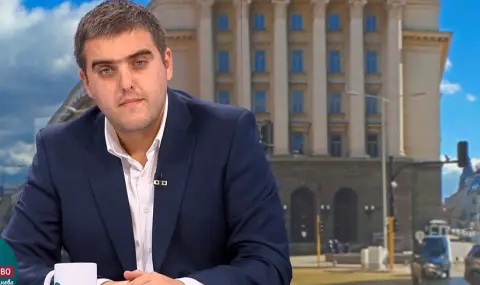"The income policy is either non-existent or very small and the responsibility should be shared between the mayor of Sofia, between the Sofia Municipal Council. If the subsidy from the finances to the municipal budget needs to be increased somewhere, by decree. The money for salaries is categorically insufficient and people are protesting. Now it was public transport, and after the holidays, most likely school and children's healthcare will protest."
This was stated by the chief economist of the Confederation of Bulgarian Trade Unions (CITUB) Lyuboslav Kostov to News.bg about the budget of Sofia and the distribution of funds.
Kostov explained that the budget for Sofia in terms of revenues is slightly more than last year and in terms of expenses it is also slightly more.
"The budget of the Sofia Municipality is giving way to several important functions, one of which is school and children's healthcare, which suffers from chronic underfunding, both in the state budget and in the municipal budget," the economist pointed out and added that the major role of the municipality together with the state is to share the costs in a balanced way.
Lyuboslav Kostov reminded about the protest of the employees in public transport and the costs for it are 50/50 - 50% is shared by the municipality and 50% by the budget. Currently, the budget takes more from the municipality and what the Confederation of Bulgarian Trade Unions wants is the difference from the income growth of up to 15%, since the mayor of Sofia gives 5% everywhere, the difference of up to 15% to be covered through the capital program, which is currently 640 million leva in the municipal budget, the union expert commented.
"We have great reservations that the municipality is ready and capable of implementing all the projects of 640 million leva and both in the state budget in capital expenditures and in the municipal council, the capital program is on a reciprocal principle. For this reason, we propose to find 29 million leva from these 640 million leva. BGN, to be transferred to personnel costs for the three companies - electric transport, road transport, CGM and the metro, so that people can receive the same salary growth as in the private sector and not run away to it," insisted the chief economist of the Confederation of Bulgarian Trade Unions.
According to him, drivers should not have to make the average salary for the country with 300 hours of overtime, but should be able to make their salary within a normal working day.
He pointed out that the problem must be solved collectively. "There are holes to fill in the income policy, because many other items in the budget have been increased. There is a 5% income policy, which, when social security and inflation are removed, people are more or less at zero. Not only public transport, but also for all others that the municipality pays, salaries are only being raised by 5%," Lyuboslav Kostov pointed out.
According to him, the big problem is that there is no income policy in the Sofia Municipality budget, but in terms of parameters and potential, the budget is bigger every year.
"There were protests in public transport and if there is no result from these protests literally within a few weeks, while the budget is being discussed and adopted, people will go on strike at work. Let's see if all transport in Sofia stops for a day, two, three, let's see what will happen and how much the losses in terms of GDP will be for the Sofia Municipality and Sofia residents," added Lyuboslav Kostov.
"There will be protests in school and children's healthcare. "It's just that the protests will now become local and sectoral protests, but in general there is no income policy either at the municipal or national level and this is the great pain of the people," commented Lyuboslav Kostov.
